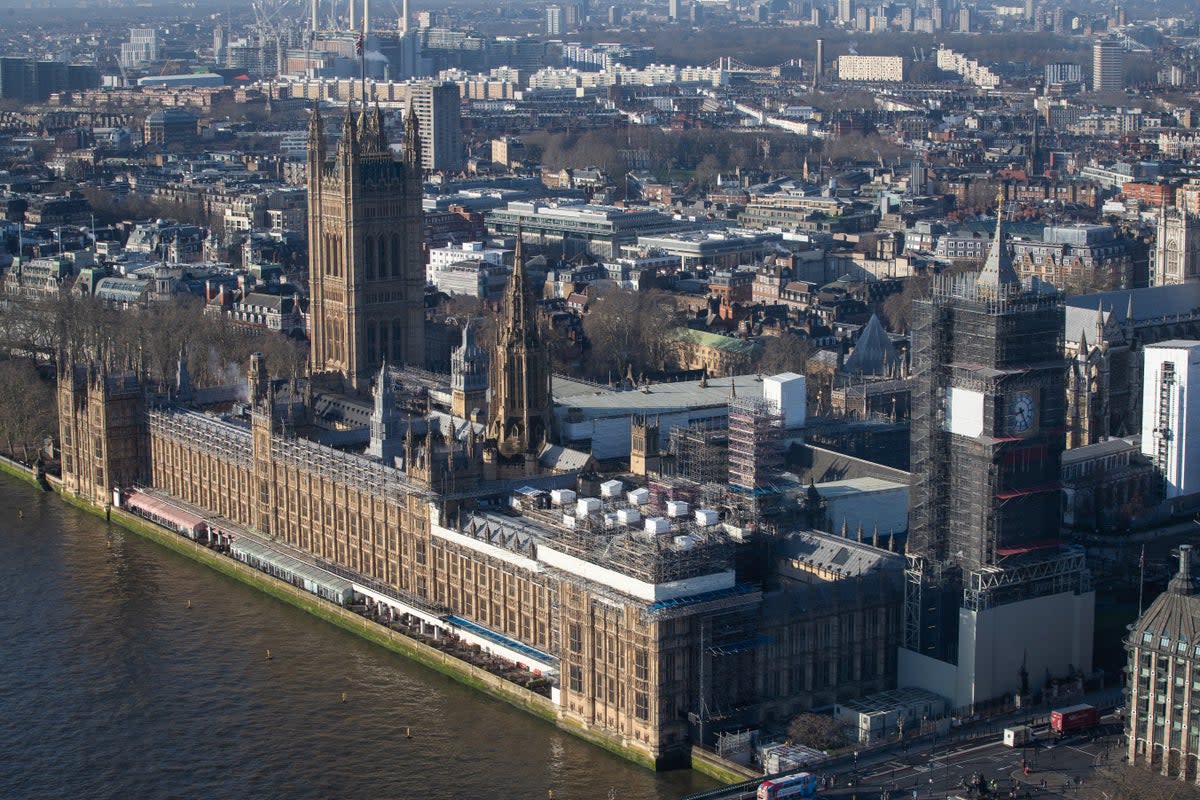Delays to multibillion pound restoration of parliament criticised in report

A unilateral decision by parliamentary authorities to rip up plans for the restoration of the Palace of Westminster could result in billions of pounds in extra costs, decades of delay and “extraordinary” health and safety risks, a spending watchdog’s report has warned.
The report by the Commons public accounts committee said there was “no justification” for the decision by the Commissions which run the Houses of Commons and Lords to abolish a sponsor body set up just three years ago to oversee the massive project and instead seek to do the job themselves.
The shock decision in February derailed the sponsor body’s plans finally to present a business case for the works in 2023, more than 20 years after the renovation of the crumbling Victorian landmark was first discussed.
It came after criticism from MPs including Jacob Rees-Mogg of the 2019 decision that both Houses should be moved out of the historic building while works take place.
The commissions have called for reconsideration of alternative options, despite an earlier study saying that keeping MPs in place could add as much as 48 years and £11bn to the project, currently estimated to cost at least £7-£13bn and last a minimum of 19 years.
Today’s report criticised “unacceptably slow” progress on renovation, warning that the likely start date for major works was being “pushed back by many years because of repeated attempts to revisit the basis of the programme”.
Disagreements among MPs on how the work should be done were “a major cause of the delays”, the report said.
“Until parliament decides what it wants, and sticks to it, it will be almost impossible for any sponsor to deliver any programme, particularly as the composition and therefore the view of parliament itself can change at least every five years.”
The committee warned that delay was not cost-free, pointing to the 25 fire incidents and 13 cases of falling masonry in the Palace since 2016, during which period House authorities have spent £140m on temporary fire safety systems alone.
The cross-party committee condemned an “unacceptable cloak of secrecy around the programme”, after House authorities failed to report an asbestos incident for three months.
And the committee said there was “no evidence to justify” the commissions’ decision to abolish the sponsor body, which was set up to take decisions out of the hands of politicians whose focus is on the five-year electoral timetable rather than the minimum 19-28 year period of the works.
Parliamentary authorities’ proposal that they should take on oversight of the work “does not seem viable”, given their previous performance with the renovation of the Elizabeth Tower – better known as Big Ben after its famous bell – which saw the original £29m budget almost triple.
“The House authorities have unilaterally taken this massive, critical project of huge national, historical, cultural and political significance back to the drawing board; reversing decisions by both Houses, with no justification for wrecking the plan that was underway – if tortuously slowly – and no assurance that they can actually deliver the works they now envisage,” said committee chair Dame Meg Hillier.
“This cannot be acceptable in anyone’s book.
“It is inconceivable that this building at the heart of our nation’s life should be allowed to deteriorate further – or worse, that those working or visiting the Palace are put in physical danger – by the inability of the current generation of residents to come to and stick to a decision about how to proceed.”
The Prospect union, which represents many parliamentary staff, backed the report’s findings.
“Delays and poor decision-making are increasing the risk of disaster for the building and the thousands of people who work there,” said general secretary Mike Clancy.
Ministers’ insistence on looking for an alternative to a full-scale “decant” of parliament into a different venue during works was “baffling”, he said.
“Ministers need to drop the political soap opera and ensure that the safety of staff in the building is put first,” he said. “The cheapest, quickest and safest solution has been shown to be a full decant. Keeping the estate operational during the restoration will not even save money.”
In a statement, the two commissions said that they had proposed a new approach to the restoration project, drawing on expert advice, because of “concerns” expressed over the costs and timescales put forward by the sponsor body.
“The new approach is designed to ensure maximum value for money and will see essential safety-critical works start sooner than was originally proposed,” they said.
“The commissions’ proposals have been published in full. Engagement with the parliamentary community on these proposals is currently under way. Members of both Houses will have the final say, and it is intended that they will have the chance to debate and decide on the commissions’ proposals before the summer recess.”

